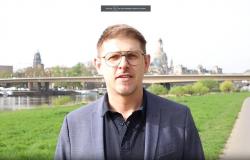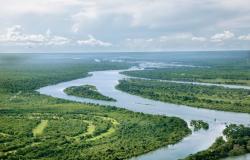NOS News•today, 8:11 PM
-
Eliane Lamper
Foreign editor
-
Eliane Lamper
Foreign editor
Several mass graves were discovered this week at the Nasser Hospital in Khan Younis. At least 300 bodies are buried around the hospital, the Palestinian Civil Defense says. Emergency services are still digging and expect hundreds of bodies to remain underground.
Bodies were said to have been discovered with their hands and feet bound. There would also be bodies with gunshot wounds, which would indicate that people had been executed. Volker Türk, the UN human rights commissioner, said yesterday he was “shocked” by the discoveries of the mass graves. He called for an international investigation.
Palestinians have gathered at the graves to check if they can find missing relatives in a body bag. Much is still unclear about what happened at the hospital. It is virtually impossible to conduct forensic investigations in Gaza; Israel keeps its borders closed and refuses to admit research teams.
Palestinians search graves for missing people:
Mass graves with hundreds of bodies discovered at Nasser hospital in Gaza
The UN has called for an international investigation “given the current climate of impunity”. The European Union also wants an investigation. The Israeli army denies having anything to do with the mass graves or executions, but that claim cannot be verified. The military says it did examine bodies to check whether they were hostages.
In January, the large hospital complex was under fire for weeks. According to the army, armed members of Hamas were hiding there, although it provided no evidence of this. According to emergency services, there are also women and the elderly in the graves. It is unclear whether hospital staff or patients are also buried.
Evidence disappears
Research teams cannot enter the area, resulting in the loss of a lot of valuable information. “If the allegations made by emergency services were documented, it would be strong evidence,” said Soren Blau, section head of forensic anthropology at the International Commission on Missing Persons. “But the moment bodies are moved, potential evidence disappears.”
Moreover, infrastructure and health care have been so destroyed by the Israeli army that the resources are not there to preserve and examine bodies. “We can also view images and photos, but this only allows us to speculate about the cause of death,” says Blau. “The longer it takes, the harder it becomes.”
Foreign journalists are unable to enter the besieged Gaza Strip, but the war is extensively documented by local journalists and citizens. Using this material, an international organization such as Human Rights Watch tries to conduct remote investigations into human rights violations, for example by analyzing photos and satellite images.
Palestinian civilians targeted
But the distance makes it more difficult to determine possible war crimes. “There are clear indications that Israel is not only attacking members of Hamas, but that Palestinian civilians are also being targeted,” said Sari Bashi, program director at Human Rights Watch. “14,000 children have already been killed in this war, an average of eighty per day.”
The organization has extensive experience in investigating mass graves and other war crimes, including in Ukraine and Syria. “We have not been allowed to enter the Gaza Strip since 2016,” Bashi said from Ramallah in the West Bank. “We are working with local forensic experts, but they are on the run and cannot simply travel around.”
Israel could also choose to launch a transparent investigation of its own, Bashi says. “But the army has so far only investigated when Israeli civilians and aid workers with Western passports were killed. There will be no investigation when Palestinians are killed.”
Tags: Hundreds bodies discovered mass graves Gaza investigation impossible
-






